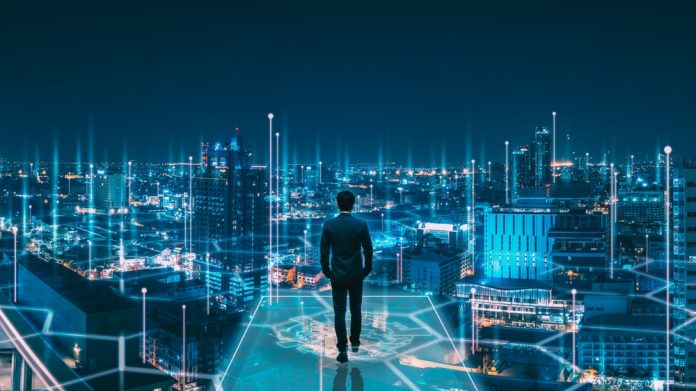The Most Important Technology Trends in the Coming Years 2025 – 2030 | The Future of Artificial Intelligence and Innovation

The world today is witnessing an unprecedented technological revolution driven by innovations in artificial intelligence, the Internet of Things, and blockchain. With the acceleration of development, it has become essential to know the most important technology trends in the coming years to understand how this will affect our daily lives, businesses, and communities.
In this article, we review the most prominent future technology trends between 2025 and 2030, highlighting their applications and expected impact.
Generative Artificial Intelligence: The Technology Revolution of the Future
Artificial intelligence is no longer just a tool for analysis; it has become capable of creating texts, images, videos, and even writing code.
Examples: ChatGPT, MidJourney, GitHub Copilot.
Uses: education, marketing, media, programming.
Challenges: ethics of artificial intelligence, accuracy of information, protecting intellectual property rights.
Internet of Things (IoT) and Big Data: The Foundation of Smart Cities
By 2030, the number of devices connected to the Internet will exceed 50 billion devices.
Applications:
Smart homes (lighting and air conditioning management).
Smart cities (traffic, energy, waste).
Healthcare (remote patient monitoring devices).
The integration of the Internet of Things with big data will enable accurate predictive analytics.
Blockchain and Digital Currencies: The Future of Digital Finance
Blockchain is no longer limited to Bitcoin.
New applications: smart contracts, digital identity management, supply chains, electronic voting.
Alternative cryptocurrencies (Altcoins) will play a key role in decentralized finance (DeFi).
5G and 6G Networks: Accelerating the Evolution of the Internet
5G provides immense internet speeds and supports technologies such as self-driving cars and virtual reality.
6G is coming by 2030 with speeds exceeding 5G by a hundred times.
Impact: Supporting the metaverse, advanced Internet of Things, and increased reliance on cloud services.
The Metaverse and Extended Reality (XR): Technology Trends Towards Virtual Worlds
The metaverse will enable virtual worlds for work, education, and entertainment.
VR (Virtual Reality) and AR (Augmented Reality) technologies will become more widespread.
Companies will invest in virtual meetings and digital shopping experiences.
Quantum Computing: The Future of Data Processing
Quantum computers will revolutionize:
encryption and cybersecurity.
Drug development and medical research.
Improving artificial intelligence.
Companies like Google, IBM, and Microsoft are leading the race towards quantum.
Green Technology and Sustainable Energy: A Digital Environmental Revolution
Focus on solar energy, advanced batteries, and green hydrogen.
Technology will help address climate challenges and reduce emissions.
Tech companies will adopt eco-friendly solutions to reduce carbon footprints.
Advanced Cybersecurity: Technology Trends for Data Protection
The increase in cyberattacks makes cybersecurity a priority.
New technologies such as Zero Trust Security and AI systems for early detection of breaches.
Governments will impose stricter laws to protect user data.
Robotics and Smart Automation: The Future of Work and Productivity
Robots will enter strongly in:
Healthcare (robotic surgery).
Industries (smart factories).
Daily services (delivery and restaurants).
Automation will increase productivity but will raise questions about the future of human jobs.
Digital Biology and Genetic Engineering: Merging Technology with Medicine
Technologies like CRISPR will open horizons for personalized treatments.
The integration of technology and medicine will help develop personalized medicine for each individual.
Smart devices will enable real-time health monitoring.
Conclusion
All indicators suggest that the future of technology will be led by artificial intelligence, quantum computing, the metaverse, and the Internet of Things. These trends will not only change how companies operate but will also reshape the economy, education, and medicine.
The coming years between 2025 and 2030 will be filled with innovations that will create a faster, smarter, and more connected digital world.